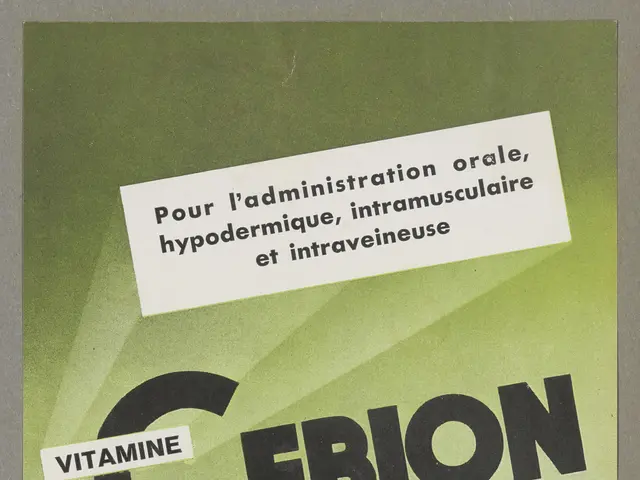Colon Cancer Treatment Gets a Boost with Atezolizumab
Immunotherapy may potentially reduced death and recurrence rates by half for colon cancer patients.
Colon cancer, one of the most common cancers worldwide, isn't treated equally across all types. For example, deficient mismatch repair (dMMR) colon cancer, which affects about 5-15% of cases, may not respond as well to chemotherapy as other types. But a brand-new study could change that.
At the 2025 American Society of Clinical Oncology (ASCO) Annual Meeting, researchers reported that adding immunotherapy, specifically atezolizumab, to chemotherapy after surgery for stage 3 colon cancer could halve the rate of recurrence and death.
The study involved 712 participants with an average age of 64, all of whom had undergone surgery to remove dMMR stage 3 colon cancer but still had cancer cells in their lymph nodes. They were randomly assigned to receive just chemotherapy for colon cancer or a combination of mFOLFOX6 and atezolizumab.
Atezolizumab is an immunotherapy drug that targets a specific protein in cancer cells called PD-L1. PD-L1's job is to keep cancer cells hidden from the immune system. By binding and blocking PD-L1, atezolizumab makes cancer cells more visible to the immune system, allowing it to attack them.
When researchers examined the results of this Phase III clinical trial, they found that participants receiving chemotherapy with immunotherapy had a 50% decrease in cancer recurrence and death, known as disease-free survival (DFS), compared to those who only received chemotherapy.
"These findings represent a major advance in the adjuvant treatment of dMMR stage 3 colon cancer and will change the treatment for this type of cancer," says Dr. Frank Sinicrope, lead author of the study and an oncologist at the Mayo Clinic. "We're changing the paradigm in colon cancer treatment by using immunotherapy at earlier stages of disease."
Now, a step forward doesn't mean the battle is won. The findings are yet to be published in a peer-reviewed journal, and extensive follow-up is needed to confirm long-term benefits and monitor safety. Also, biomarker analyses and quality-of-life assessments will be crucial in determining which patients benefit the most from combined therapy.
However, the study opens the door to more personalized and effective treatments for colon cancer. Dr. Wael Harb, a medical oncologist, said, "This study is a major step forward for patients with stage III colon cancer who have a specific genetic feature called dMMR. The combination of standard chemotherapy with the immunotherapy drug atezolizumab cut the risk of cancer recurrence and death by 50%. That's a dramatic improvement - and in the world of cancer care, results like these can lead to real changes in how we treat patients."
In the future, researchers hope that immunotherapy could eventually reduce the length of time for both adjuvant chemotherapy/immunotherapy and potentially replace chemotherapy in some dMMR patients.
Enrichment Data:
Role of Atezolizumab in Immunotherapy for Stage 3 dMMR Colon Cancer
Atezolizumab is an immune checkpoint inhibitor that plays a crucial role in immunotherapy for stage 3 deficient mismatch repair (dMMR) colon cancer. It targets the programmed death-ligand 1 (PD-L1) protein on cancer cells. By blocking PD-L1, atezolizumab makes cancer cells more visible to the immune system, allowing it to attack them more effectively[2][3].
Clinical Impact:
- Improved Disease-Free Survival (DFS): The addition of atezolizumab to chemotherapy significantly enhances DFS in patients with stage 3 dMMR colon cancer. Studies have shown a 50% reduction in the risk of recurrence and death compared to chemotherapy alone[2].
- Enhanced Anti-Tumor Response: dMMR colon cancers have a high mutational burden, which can stimulate a stronger anti-tumor immune response when treated with immunotherapy like atezolizumab. This approach is particularly beneficial for patients with this type of cancer, including those with Lynch syndrome[1].
- Manageable Side Effects: While atezolizumab combined with chemotherapy can lead to severe side effects, these are generally manageable and consistent with known toxicities of the drugs involved[1].
- The study exploring the impact of atezolizumab in stage 3 dMMR colon cancer treatment found that disease-free survival was significantly improved in participants who received chemotherapy with immunotherapy, contrasting with those who only received chemotherapy.
- The immune system play a vital role in the response to atezolizumab, an immunotherapy drug used in the treatment of colorectal cancer, particularly in cases of deficient mismatch repair (dMMR).
- The addition of immunotherapy, specifically atezolizumab, to chemotherapy after surgery for stage 3 dMMR colon cancer could potentially reduce the length of adjuvant therapy, and in some cases, replace chemotherapy.
- Colorectal cancer research now focuses on personalized treatments, with studies like this one in oncology, showing the potential of combining standard chemotherapy with immunotherapy drugs like atezolizumab to improve health and wellness outcomes for certain medical-conditions.
- Science continues to advance in the field of cancer, with medical breakthroughs like the use of atezolizumab in the treatment of stage 3 dMMR colon cancer, promising a brighter future for cancer patients in managing and potentially overcoming their specific health challenges.




